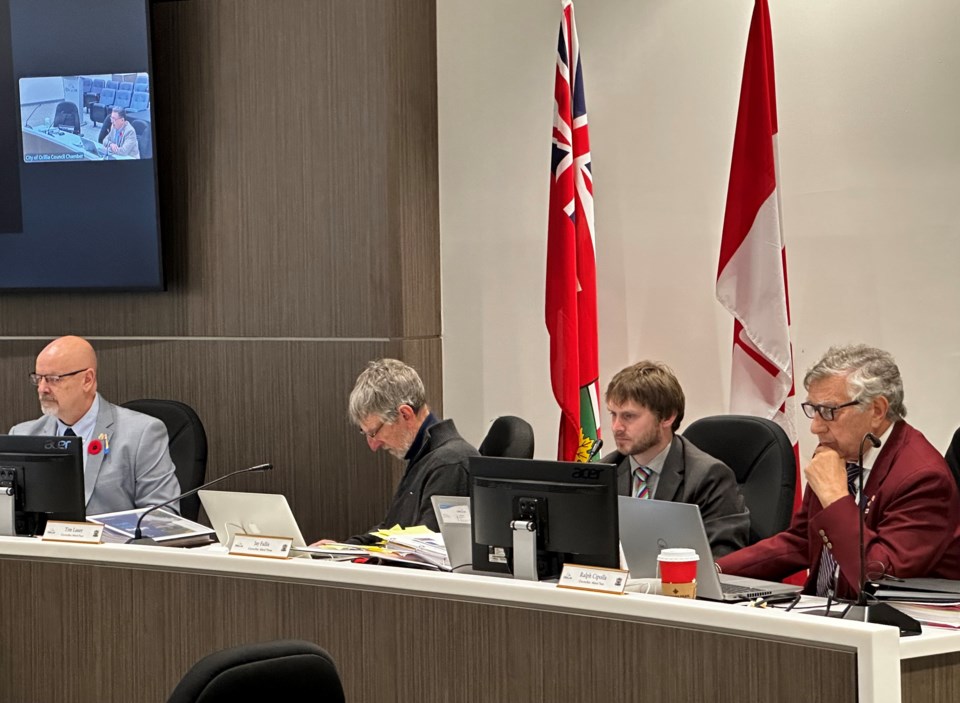At Monday’s council meeting, Mayor Don McIsaac said he hopes to see all Orillians connected with a family doctor in the near future.
“My goal, personally, is to connect every person in Orillia to a primary care provider in the next year,” the mayor said. “I think we can do this, and I think we must do better.”
To that end, city politicians approved $500,000 in funding and a new working group to look into bringing a city-run medical clinic to Orillia.
The idea came forward, in part, after a similar plan rolled out in Colwood, B.C., where the municipality hired family physicians, pays their salaries and benefits, and is then reimbursed by the province — a tactic McIsaac previously said could play out in Orillia through OHIP.
Last week, McIsaac told OrilliaMatters new doctors are often impeded by student debt when looking to set up practices, and the idea is to provide the administrative support required to ensure “the doctors are free to practise and do what they do best.”
Given the shortage of family doctors in Orillia and beyond — with around 2.5 million Ontario residents without a family doctor — the working group has been mandated to consult with health-care organizations to see if a city-run medical clinic would be an effective way to bring family doctors to the city.
The working group — composed of councillors Ralph Cipolla, Luke Leatherdale, Jeff Czetwerzuk, and Whitney Smith, as well as representatives from Orillia and Lake Country Physician Recruitment and Couchiching Ontario Health Team — is set to report back to council by March 24.
Council broadly supported connecting more residents with family doctors, but some were a bit wary of the city dipping its toes into healthcare – which is typically a provincial responsibility.
“We all know that healthcare is a provincial responsibility, and we're all aware that municipalities are currently funding areas of provincial responsibility to the tune of … more than $4 billion a year,” said Coun. Janet-Lynne Durnford.
“I am cautious to take this on if it is going to be any sort of long term investment for the city, because I think that's taxing people twice for the same service, and the province needs to be stepping up to the plate,” Durnford said. “However … if the city can make back their investment, if we can kick start a managed medical model clinic in Orillia, it is a worthwhile investment.”
Coun. Jay Fallis said the family doctor situation has become “brutal,” and that “it’s getting to the point where even doctors don’t have their own doctors,” and he laid blame on the province for the current situation.
“I would certainly agree that if you're going to point the finger in this scenario, it is 100 per cent at the province. This is not our jurisdiction at all,” he said. “I think we certainly owe it to everyone in Orillia to try to help solve the issue and address it, but (it’s) certainly important to remember that as we go down the road.”
Overall, however, council strongly supported the idea.
“This is one of the most important motions that I'll ever move. This is a necessity within our city,” said Coun. Ralph Cipolla. “People are dying because they don't have doctors.”
McIsaac stressed the working group is “exploratory” in nature, and could come back with any number of recommendations to increase healthcare in the city — including hiring physicians as a municipality.
“If they come back with something else that's better, then that's fine, too. I think there are things out there we don't know,” he said. “One of the things I think we all heard knocking on doors was that people are struggling to find doctors. We've talked to doctors who say there's a barrier to entering practice, and this initiative will remove those barriers. It's really an alternative business model.”
Some members of council questioned the need for $500,000 in funding for the working group, with Coun. David Campbell calling the allocation “premature,” but the funding was ultimately approved.
“They'd come back to council for approval in terms of spending, but they would use that as an amount to make their budget,” clarified McIsaac. “If they come back and say, ‘Hey, it’s got to be some other number,’ then that’s a different discussion.
